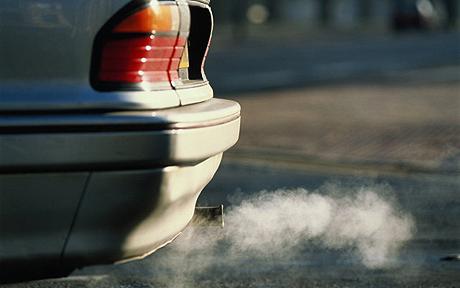Just when you thought it was safe to breathe, a pair of studies underscore the grave threat that air pollution poses to public health.

According to new research from MIT, in 2005 air pollution accounted for a staggering 200,000 premature deaths in the United States, more than 58,000 of which can be attributed to vehicle emissions. Air pollution-related mortality shortened the average victim's lifespan by 12 years, the study estimates.
The research team used air quality modeling and epidemiological evidence to estimate the mortality effects of six polluting sectors across the United States. Vehicle emissions caused more deaths than any other category of polluter. The next greatest killer was power generation emissions -- 54,000 deaths -- and industrial emissions -- 43,000.
Though city dwellers typically have a smaller emissions footprint per capita, the concentration of people and activities make major East Coast cities the worst for deadly vehicle pollution. In Baltimore, air pollution-related deaths were the highest in the country, at 130 per 100,000 residents. New York and Washington, DC, also have alarmingly high levels of fine particle pollution. Meanwhile, people who live in heavily industrial areas are vulnerable as well. Donaldsonville, Louisiana, with its nine oil refineries, has the highest rate of mortality related to fine particle pollution in the U.S.
"The results are indicative of the extent to which policy measures could be undertaken in order to mitigate the impact of specific emissions from different sectors," wrote lead author Fabio Caiazzo and his team, "in particular black carbon emissions from road transportation and sulfur dioxide emissions from power generation."
As troubling as these findings are, they're not too far out of line with other research on the topic. In 2010, the EPA estimated that there were 160,000 premature deaths due to fine particle pollution alone. An additional 4,300 deaths were attributed to ozone pollution.
Meanwhile, the World Health Organization recently added air pollution to its list of carcinogens. The WHO's determination comes from experts at its International Agency for Research on Cancer, who, after reviewing thousands of studies, concluded air pollution could be linked to both lung and bladder cancer [PDF].
"The air most people breathe has become polluted with a complicated mixture of cancer-causing substances," Kurt Straif of the IARC told the Associated Press. He added that the WHO now considers air pollution "the most important environmental carcinogen," ahead of second-hand smoke.





